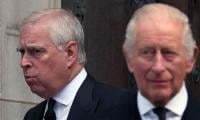Can PPP, PML-N correct historic wrong?
The PML-N and the PPP have a history of ‘distrust’ which could not be removed despite signing historic ‘Charter of Democracy’.
Both have not learnt any lesson as they still play ‘hide and seek’ making Opposition task much difficult for launching any movement against the government of Prime Minister Imran Khan, who has emerged as a strong challenger for both.
Now can the new leadership learn from the mistakes and blunders of the past at a time when their parties’ top leaders face political exit at least from the electoral politics.
Historically, if the PML-N was used by late Gen Zia, who brought Sharifs into politics to damage the PPP, the other was used by Gen Pervez Musharraf, when the PPP gave conditional support to him after Oct 12, 1999 coup and welcomed the ouster of the PML-N government.
In 2006, both late Benazir Bhutto and Nawaz Sharif finally realised how they have been used by the then Establishment against each other and pledged not to repeat past mistakes before they signed CoD. Unfortunately this commitment did not last even a year when Musharraf in a bid to prolong his rule reached out to Benazir Bhutto, who accepted National Reconciliation Order, and ditched his ‘King’s Party’ (PML-Q).
The NRO also could not last as Benazir decided to return home for general elections against the advice and subsequent threat to her life in case she did not accept his proposal not to return before elections. This also paved way for Nawaz Sharif to return before 2010, though under 2000 ‘deal’ he was suppose to remain out of politics for 10 years.
After BB’s assassination, the relationship between Asif Ali Zardari and Nawaz Sharif remained that of love, hate but the democratic system continued and for the first time led to the smooth transfer of power. Three general elections were held since 2008, in accordance with the spirit of CoD.
But the two parties still don’t trust each other even when PML-N leader Nawaz Sharif not only disqualified but also facing seven years imprisonment and former president Asif Ali Zardari facing some serious corruption cases and if convicted could be disqualified too. This has brought extra burden on the new leadership of both the parties ie Bilawal Bhutto Zardari and Maryam Nawaz. On the one hand they have to look for way forward and on the other side rising crises within their parties which may seal political fate of their elders.
The decision to change Senate Chairman Sadiq Sanjrani could be just symbolic but a confession that the earlier decision and move of Zardari to side with the PTI against the PML-N could be the reaction to what the latter did to his friends in Sindh in 2015 like the arrest of Dr Asim Hussain but in longer term it hurts the PPP as well.
Therefore, unlike in 2006, politics today is far more challenging for the new leadership of the two parties than in the past. There is no military dictatorship in the country at the moment and despite fragile democracy and weak democratic institutions, country now has third civilian government since 2008. Whether they called Imran Khan ‘selected’ he has emerged as strong challenger for them as his politics revolved around ‘misrule of the past’.
In a country like Pakistan, where general elections always been questioned, the assemblies are generally ‘selected’ and not truly ‘elected’ and subsequently we have ‘selected governments’.
History is the best judge and CoD itself reflects how governments in Pakistan were overthrown and political leadership allowed space to the establishment.
But can PPP Chairman Bilawal Bhutto Zardari and PML-N Vice President Maryam Nawaz make a ‘way forward’ in the presence of the leaders of the past like Asif Ali Zardari, Nawaz Sharif and Shahbaz Sharif, who still have key role in decision making.
Fresh attempts have started to break the PML-N as the PTI struggles to make inroads in Punjab on its own and the developments in the last few days like meeting of some PML-N MPAs with the premier clearly indicates the return of politics of the 90s.
So it is time for the PPP and the PML-N new leadership to revisit their decline and ‘correct the historic wrong’ committed by them in their respective way.
Had CoD been implemented in letter and spirit we would have a strong National Accountability Bureau, political leadership would not have been engaged with the establishment on decision making on matters other than ‘national security’ and we could have a strong and independent Election Commission of Pakistan. These are some of the failures of the PPP and PML-N and clear violation of CoD. But some positive steps have also been taken in the last 10 years which includes smooth transfer of power from one government to another, allowed governments to complete their full term in office, former president Zardari’s decision to hand over all presidential powers to the parliament, 18th Amendment and not to allow third party to intervene.
In 2014, the then Opposition particularly the PPP stood behind the PML-N government. Similarly, about a week ago the PPP Chairman Bilawal Bhutto rejected the proposal to dislodge the PTI government and go all out against the government even at the cost of any martial law. You can take too many ‘U-turns’ and survive but you can’t afford to make many historic mistakes and in the process damage the system. One has to wait and see how far they can ‘correct their historic wrong’.
The writer is a senior columnist and analyst of Geo, The News and Jang.
Twitter: @MazharAbbasGEO
-
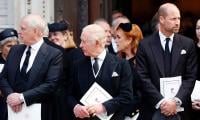 Prince William Fears Andrew Scandal Could Cast Shadow Over His Future Reign
Prince William Fears Andrew Scandal Could Cast Shadow Over His Future Reign -
 Snoop Dogg Jumps Into David Beckham, Brooklyn Family Feud With Strong Message: ‘No Father Is Perfect’
Snoop Dogg Jumps Into David Beckham, Brooklyn Family Feud With Strong Message: ‘No Father Is Perfect’ -
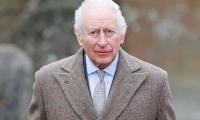 'Monarchy Seems Quite Unstable Now', King Charles Warned
'Monarchy Seems Quite Unstable Now', King Charles Warned -
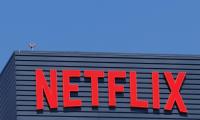 UK To Bring Netflix, Disney & Amazon Prime Video Under New Broadcasting Rules
UK To Bring Netflix, Disney & Amazon Prime Video Under New Broadcasting Rules -
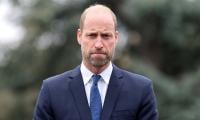 Prince William Reacts As Earthshot Prize Dragged Into Epstein Controversy
Prince William Reacts As Earthshot Prize Dragged Into Epstein Controversy -
 Tropical Cyclone Horacio Becomes World’s First Category 5 Superstorm Of 2026: Latest Forecast & Risks Explained
Tropical Cyclone Horacio Becomes World’s First Category 5 Superstorm Of 2026: Latest Forecast & Risks Explained -
 Hilary Duff Recalls Brutal Thing She Did To Husband Matthew Koma After Losing Their Home In Los Angeles Wildfire
Hilary Duff Recalls Brutal Thing She Did To Husband Matthew Koma After Losing Their Home In Los Angeles Wildfire -
 Princess Beatrice, Edo Mapelli Mozzi Fall Into Marital Woes: ‘He Doesn’t Want Her Seen With Andrew’
Princess Beatrice, Edo Mapelli Mozzi Fall Into Marital Woes: ‘He Doesn’t Want Her Seen With Andrew’ -
 Meta’s Internal Memo Reveals How Executives Ignore Safety Warnings To Push Messenger Encryption Rollout Despite Risks To Teen Safety
Meta’s Internal Memo Reveals How Executives Ignore Safety Warnings To Push Messenger Encryption Rollout Despite Risks To Teen Safety -
 Robert Carradine's Shocking Suicide Answer 'lies' In Brother David Old Tragic Incident
Robert Carradine's Shocking Suicide Answer 'lies' In Brother David Old Tragic Incident -
 'CIA' Star Tom Ellis Drops Bombshell Reason Why He Stayed Away From 'FBI': I Know What They Do'
'CIA' Star Tom Ellis Drops Bombshell Reason Why He Stayed Away From 'FBI': I Know What They Do' -
 Biographer Calls Andrew National Security Risk: ‘This Huge Can Of Worms Is Getting Closer To King’
Biographer Calls Andrew National Security Risk: ‘This Huge Can Of Worms Is Getting Closer To King’ -
 DeepSeek Under Fire: Anthropic Accuses Chinese AI Firm Of Misusing Claude For Unauthorized Model Training
DeepSeek Under Fire: Anthropic Accuses Chinese AI Firm Of Misusing Claude For Unauthorized Model Training -
 Would You Drive In A Driverless Taxi? AI-powered Robotaxis Roll Out In London Amid Growing Debates Over Road Safety, Passenger Convenience
Would You Drive In A Driverless Taxi? AI-powered Robotaxis Roll Out In London Amid Growing Debates Over Road Safety, Passenger Convenience -
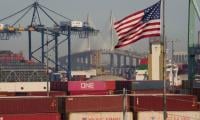 Trump’s Tariff Plan: 10 Percent Rate Takes Effect Despite 15 Percent Announcement Following Supreme Court Ruling
Trump’s Tariff Plan: 10 Percent Rate Takes Effect Despite 15 Percent Announcement Following Supreme Court Ruling -
 Eric Church Reveals How Vince Gill Made His Brother Barndon's Death 'a New Normal'
Eric Church Reveals How Vince Gill Made His Brother Barndon's Death 'a New Normal'

